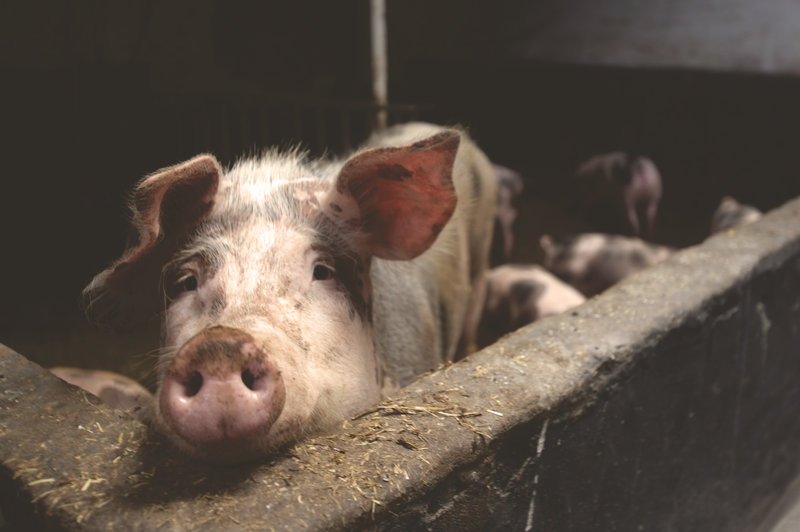
Pork processing is big business in Minnesota, which ranks second in the United States for the number of pigs raised in the state, according to the Minnesota Pork Producers Association. (Matthias Zomer/Stocksnap)

Share
United Food and Commercial Workers (UFCW) International Union, together with Public Citizen and UFCW Locals 663, 440 and 2 filed a federal lawsuit in Minneapolis this week over controversial U.S. Department of Agriculture rule changes for regulating pork processing plants.
The plaintiffs say a key concern is a provision that removes maximum line speeds when bringing hogs to slaughter. They say allowing faster line speeds compromises worker safety as well as food safety.
“Thousands of our members work hard every day in America’s pork plants to help families across the country put food on the table. Increasing pork plant line speeds is not only a reckless giveaway to giant corporations, it will put thousands of workers in harm’s way,” said UFCW International President Marc Perrone. “This new rule would also dramatically weaken critical protections that Americans depend on to be able to select safe, healthy food to feed their families every day. The safety of America’s food and workers is not for sale and this lawsuit seeks to ensure this dangerous rule is set aside and these companies are held accountable.”
“Shockingly, USDA admitted in its rule that it simply ignored the mounds of evidence that showed its actions will harm workers, while bending over backwards to help businesses. That violates basic principles of administrative law,” said Adam Pulver, an attorney with Public Citizen, which represents UFCW and the three locals in the case.
The lawsuit alleges that the new rule violates the Administrative Procedure Act because it is not backed by reasoned decision-making.
“We urged the USDA to consider how unsafe this rule would make our workplaces, but they refused,”said UFCW Local 663 President Matt Utecht in Minnesota. “We had no choice but to go to court to stop a rule that will endanger the health and livelihoods of thousands of UFCW members.”
Kim VanderWall, an assistant professor in the University of Minnesota’s Department of Veterinary Population Medicine, said it could open the door for the spread of viruses in the supply chain.
“You could imagine if the carcasses are coming by more quickly,” she said, “we might not detect the same things that we would detect if it was going a little bit slower.”
The USDA has said the changes are intended to modernize the pork-processing system. They also include reducing the number of federal meat inspectors on processing lines by 40%. The complaint alleges that a combination of faster line speeds and fewer inspectors is asking for trouble, and aims to block the changes.
The trouble isn’t only on the processing lines. VanderWaal said another example of how the changes could compromise food safety is through transportation. Even if a truck that arrives at a processing plant is perfectly clean, she said, all it takes is one tainted batch of product leaving the facility to create problems.
“Sometimes, they leave the slaughter plants with detectable virus on the surface of those trucks,” she said, “and those trucks can go back to pick up more pigs within a farm, and that can be a potential way for farm spread of viruses.”
VanderWaal said this comes at a time when the industry still is trying to get a handle on a particular virus that has plagued the swine industry for nearly 30 years. She said Porcine Reproductive and Respiratory Syndrome Virus (PRSSV) – also known as Betaarterivirus suid 1 – costs the industry more than $500 million annually.
VanderWall’s team recently received a grant to help study the virus and its complex evolution, so that regulators and producers can prevent its spread.
The lawsuit is online at citizen.org.

